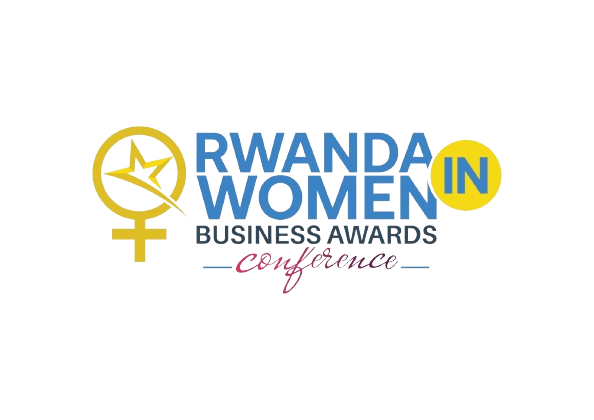UN Women Rwanda
Media Coverage of Gender-Based Violence in Rwanda: “Bridging Capacity Gaps and Fostering Social Responsibility.”
By Wakibi Geoffrey
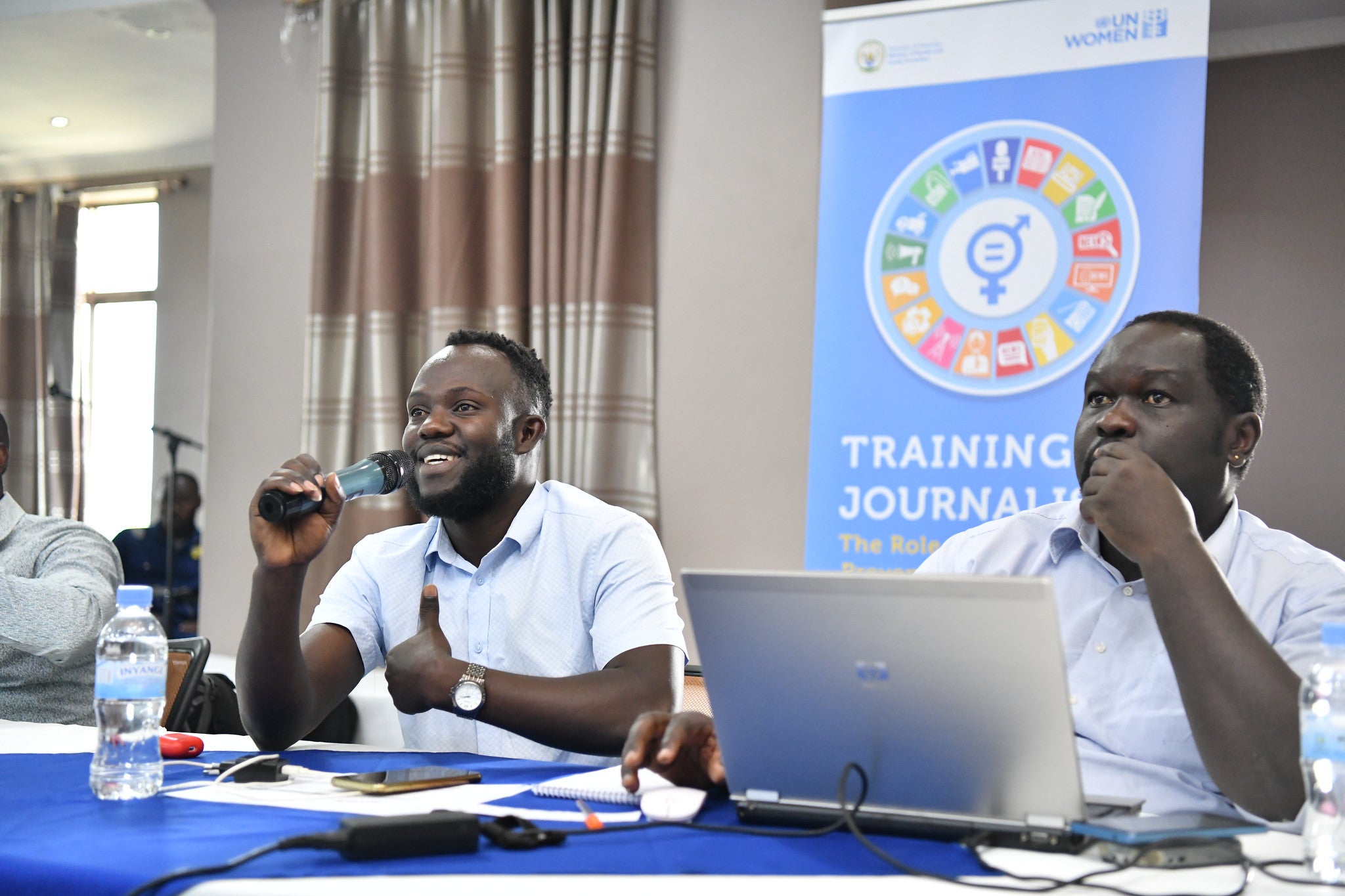
A journalist addresses attendees at a three-day training focused on GBV-sensitive reporting for media professionals in Rwanda. Photo: UN Women/Pearl Karungi
From June 12 to 14, 2024, UN Women Rwanda, in partnership with the Ministry of Gender and Family Promotion (MIGEPROF), organized a three-day training event in the Musanze district. The initiative aimed to equip media professionals with the skills necessary to actively engage in the fight against gender-based violence (GBV). The training attracted around 50 participants, including chief editors, journalists, and social media influencers, with a particular emphasis on the increasing issue of online GBV and the often-inadequate media responses to it.
Throughout the intensive sessions, participants from diverse media, law enforcement, and policy backgrounds expressed significant concerns regarding the portrayal of GBV in the media. The main issues identified included:
I) A lack of adequate training and comprehension of GBV complexities among many media professionals, resulting in oversimplified and sometimes biased narratives.
II) A tendency among media outlets to favor sensationalism and attention-grabbing headlines, which can lead to unethical practices such as victim-blaming and the inappropriate portrayal of victims rather than focusing on the perpetrators.
III) The influence of entrenched patriarchal norms and societal expectations that perpetuate harmful stereotypes and victim-blaming attitudes in the media’s coverage of GBV.
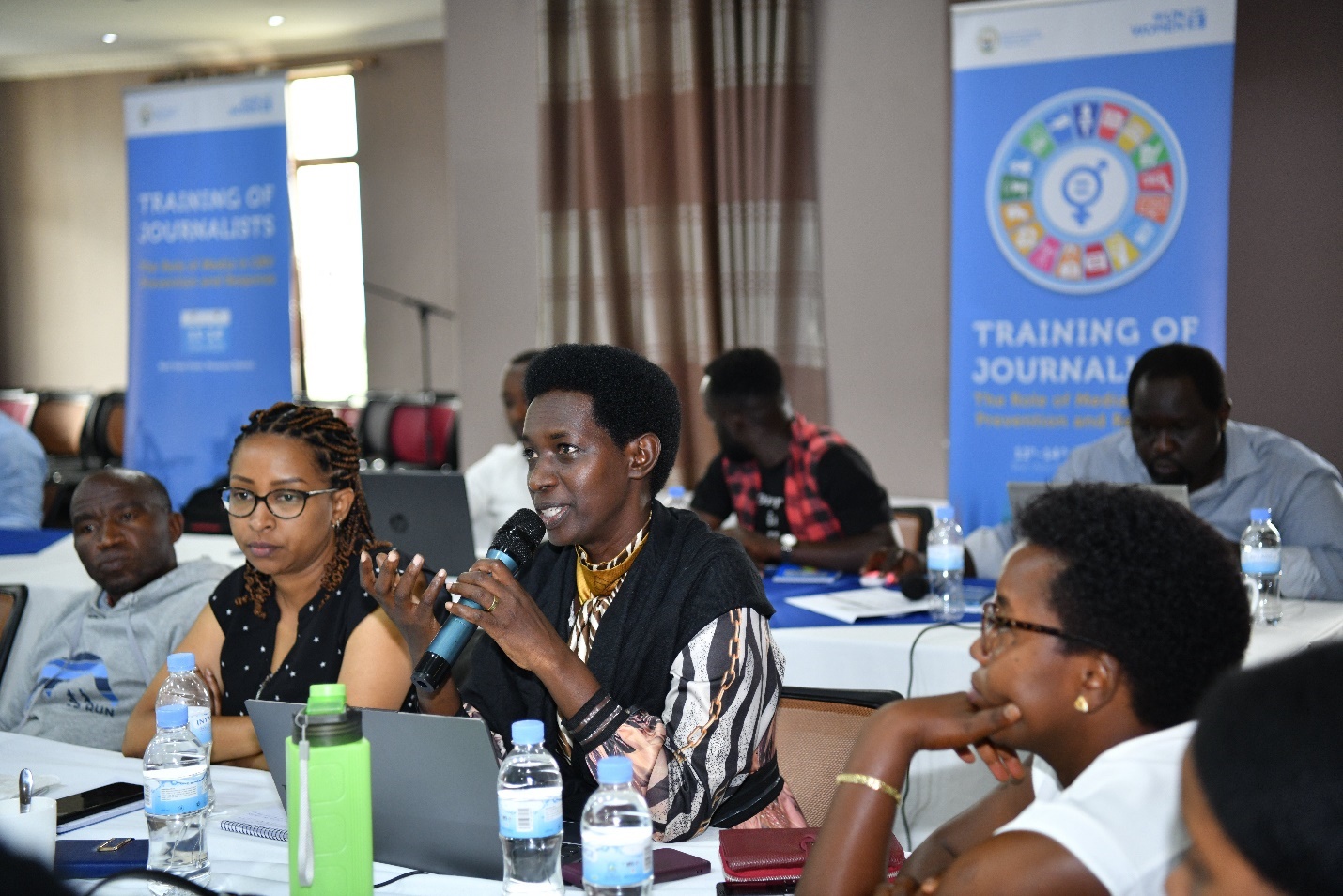
A participant shared perspectives during one of the training sessions. Photo: UN Women/Pearl Karungi
The discussions during the training underscored that Rwandan media outlets often do not fully grasp the severity and implications of online violence against women as one participant noted. Journalists frequently downplay incidents, and their reporting often falls short of ethical standards. This can result in victim-blaming, exacerbating the trauma and shame experienced by victims. Additionally, despite the diverse backgrounds and experiences of the training participants, the challenges and gaps identified by these media professionals were notably similar, aligning with the insights of gender and media experts who analyze global trends in the coverage of gender-based violence (GBV). Key issues include biases and stereotypes in GBV reporting, stories lacking context, the absence of human rights-based approaches, imbalanced information sources, problematic terminology with less neutral language, significant underreporting of various forms of GBV, a scarcity of positive narratives, the impact of violence on women journalists, and a deficiency in standards, guidelines, and training.
For example, regarding biases and stereotypes in GBV reporting, it was noted that media content often perpetuates sexist stereotypes that link male identity with violence, control, independence, aggression, and power, while women are associated with emotions, vulnerability, dependence, and sensitivity. A participant emphasized that “News reports of violence against women often portray them as responsible for the violence they endure, based on their clothing or manner of speaking,” which is perceived as ‘provocative.’
Further discussions revealed that cultural norms and patriarchal attitudes pose significant challenges in tackling online gender-based violence. Victim blaming remains widespread, and societal expectations may prevent many victims from coming forward. Consequently, individuals, particularly women, who experience online harassment often encounter blame instead of support. Overall, training participants expressed that media coverage of online gender-based violence is severely lacking, with journalists failing to adequately address these issues.
Journalists may lack a thorough understanding of the various forms of violence, which can result in oversimplified narratives and misrepresentation. In the current media environment, editors often prioritize attention-grabbing headlines and sensationalism to boost readership. Consequently, media coverage frequently scrutinizes the behavior of survivors to rationalize violence, while employing inappropriate imagery that depicts survivors as passive, silent, and trapped.
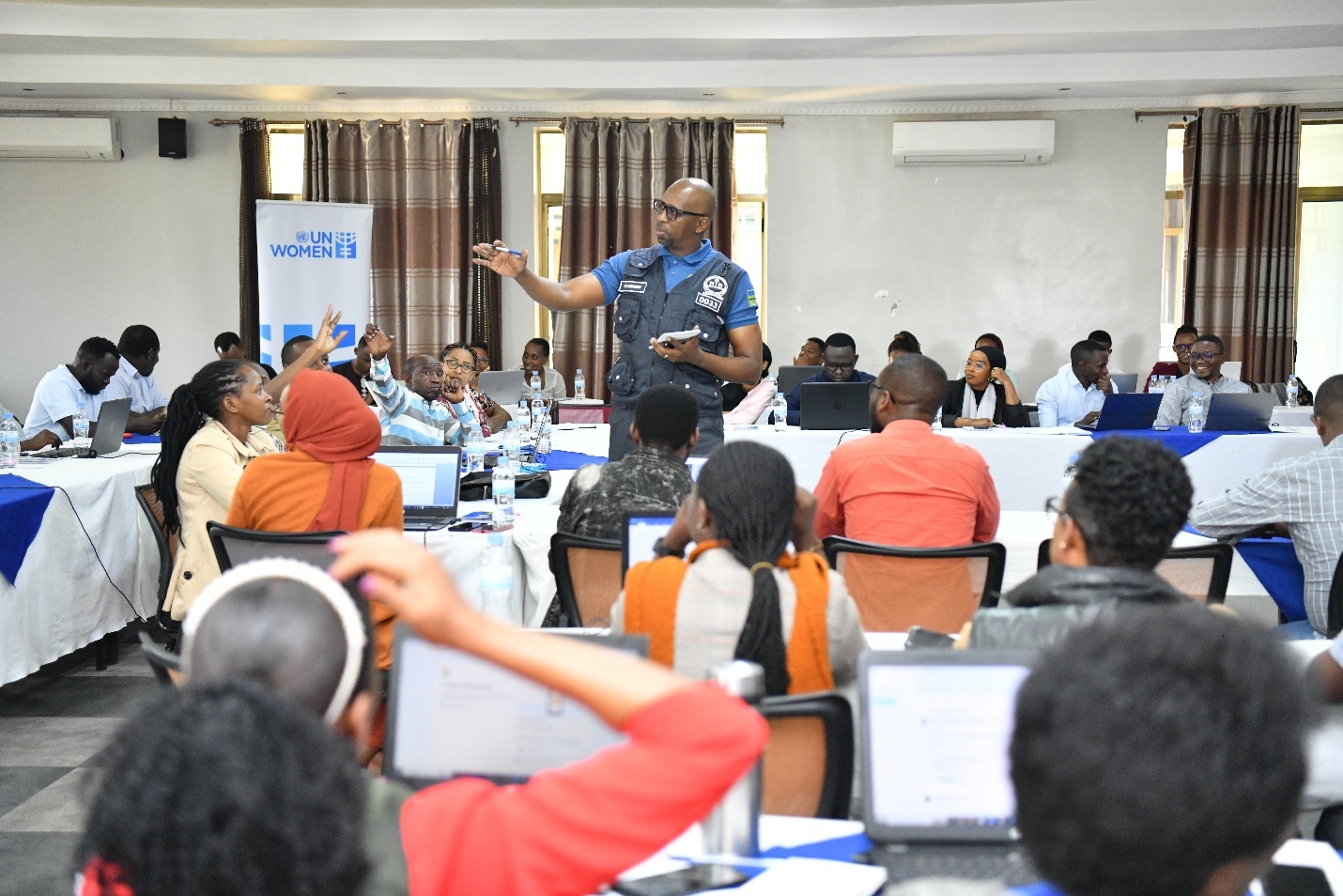
MURANGIRA B. Thierry, Spokesperson of The Rwanda Investigation Bureau (RIB), led a session on Online GBV during the training. Photo: UN Women/ Pearl Karungi.
The training discussions highlighted the pressing need for significant reforms in media reporting practices, along with recommendations for ethical standards. Participants stressed the necessity of adhering to ethical reporting guidelines that steer clear of sensationalism, victim-blaming, and stigmatization. The importance of using sensitive language and accurately portraying both victims and alleged perpetrators was emphasized as essential.
Moreover, media advocacy campaigns were suggested to enhance awareness among editors and journalists regarding responsible reporting on GBV. Initiatives aimed at promoting positive and balanced storytelling were also explored.
There were calls for stricter media regulations to ensure that digital platforms are held accountable for content related to online GBV, thereby reducing offensive comments and harmful representations.
Following the training, participants pledged to create a network of journalists focused on addressing GBV. This network is intended to encourage collaboration, share best practices, and maintain high standards of professionalism and social responsibility in GBV reporting. By utilizing this platform, media practitioners aim to elevate the voices of survivors, challenge stereotypes, and advocate for systemic changes in media practices.
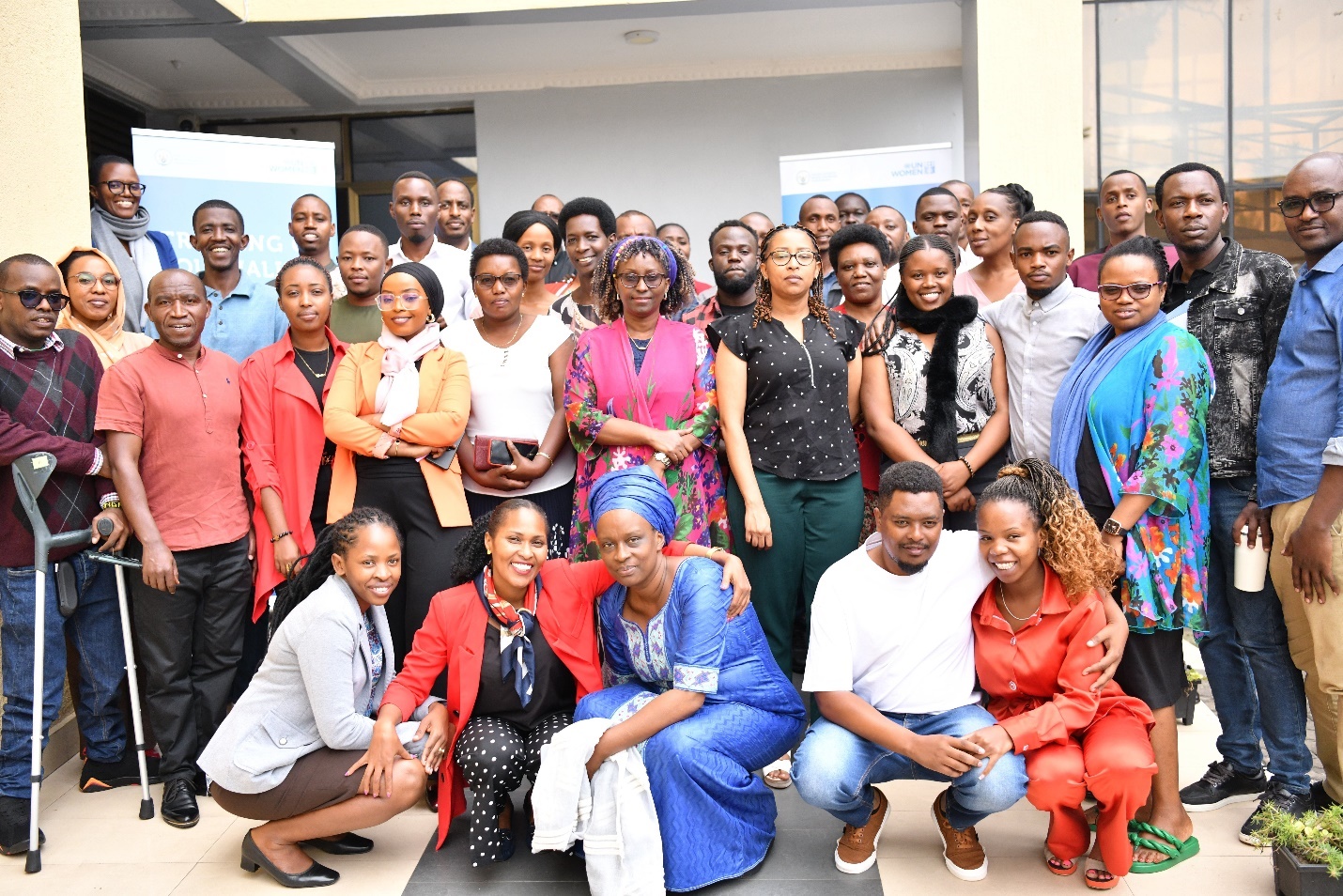
Participants in the three-day training included chief editors, journalists, social media influencers, government representatives, and UN Women staff. Photo: UN Women/Pearl Karungi
In summary, the influence of media on public perception and policy regarding gender-based violence (GBV) is significant. As Rwanda confronts the issues related to online GBV, media professionals are essential in fostering positive transformation. By engaging in continuous education, advocacy, and partnerships, the media can serve as a formidable ally in combating GBV, aiding in the creation of a more knowledgeable, compassionate, and just society. The training not only identified the existing gaps and challenges in GBV reporting but also ignited a shared dedication among media practitioners to maintain the highest standards of ethical journalism and social accountability within Rwanda’s media environment.
